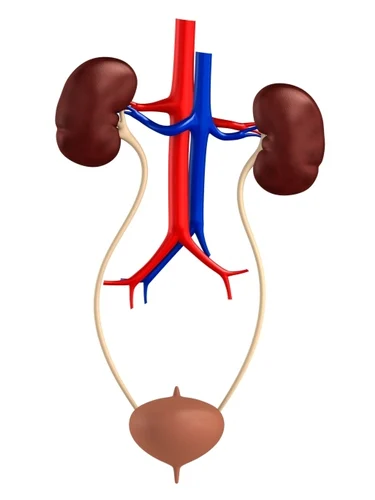Kidney stones are a common yet painful condition that affects many people worldwide. Several risk factors contribute to the development of kidney stones, ranging from dietary habits to medical conditions. Understanding these risk factors is crucial for prevention and management.
Here’s a detailed look at what increases the likelihood of developing kidney stones:
- Dehydration: Insufficient fluid intake can lead to concentrated urine, which increases the likelihood of crystal formation in the kidneys. Dehydration is one of the primary risk factors for kidney stone formation.
- Dietary Factors:
- High Protein Diet: Diets rich in animal proteins (such as red meat) can increase uric acid and calcium levels in urine, promoting stone formation.
- High Sodium Intake: Excessive salt consumption can lead to higher calcium levels in urine, contributing to the formation of calcium oxalate stones.
- High Oxalate Foods: Foods like spinach, rhubarb, nuts, and tea contain high levels of oxalate, which can combine with calcium in the urine to form stones.
3. Obesity: People who are overweight or obese are at higher risk of developing kidney stones due to changes in metabolism and dietary habits associated with obesity.
4. Medical Conditions:
- Hypercalciuria: Excessive calcium excretion in urine.
- Hyperparathyroidism: Overactivity of the parathyroid glands leading to increased calcium levels in blood and urine.
- Gout: Elevated uric acid levels in the blood can lead to uric acid stone formation.
- Cystinuria: Genetic disorder causing cystine stones to form in the kidneys.
- Renal Tubular Acidosis: A condition where the kidneys are unable to acidify urine properly, leading to calcium phosphate stone formation.
5. Family History: A family history of kidney stones increases an individual’s risk, suggesting a genetic predisposition to stone formation.
6. Certain Medications: Some medications, including diuretics, calcium-based antacids, and certain antibiotics, can increase the risk of kidney stones.
7. Digestive Diseases and Surgery: Conditions like Crohn’s disease, gastric bypass surgery, and chronic diarrhea can affect the absorption of calcium and other substances, increasing the risk of stone formation.
8. Age and Gender: Men are more likely to develop kidney stones than women, and the risk tends to peak in individuals aged 30–50 years.
9. Climate: Living in hot climates can lead to increased fluid loss and dehydration, which can contribute to kidney stone formation.
10. Lifestyle Factors: Sedentary lifestyle, excessive alcohol consumption, and certain occupations that lead to dehydration (e.g., working in hot environments) can increase the risk of kidney stones.
Understanding these risk factors is crucial for adopting preventive measures. Drinking plenty of water, maintaining a balanced diet low in sodium and oxalate-rich foods, and managing underlying medical conditions can help reduce the risk of developing kidney stones. If you suspect you may have kidney stones or are at risk, consulting a healthcare professional for personalized advice and monitoring is recommended.





Comments